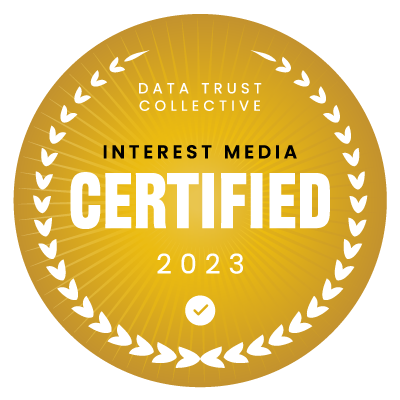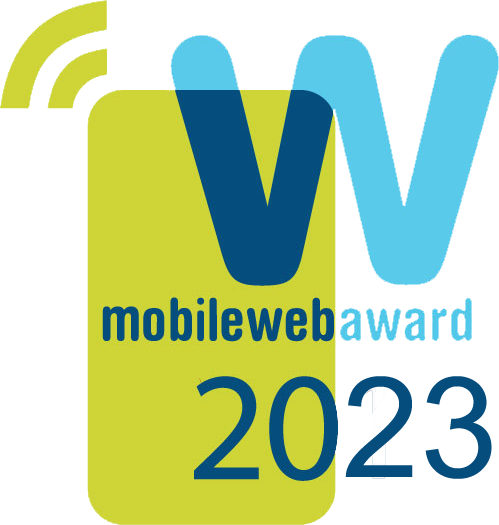
Grow your Next Demographic: Marketing to Gen Z the Right Way
- Gain insight into what drives Gen Z and create “authentic” marketing messages that align with their values and beliefs, and engage in meaningful conversations.
- Learn the content preferences of Gen Zers and how to create campaigns and messages that will compel them.
- Segment your audience and customize your marketing strategies in the right way for Generation Z to promote your brand successfully.
Generation Z is a Valuable Demographic
“Gen Z’s purchasing power will reach $2 trillion in less than ten years,” – Oxford Economics study
Generation Z is born between 1997 and 2012. As of June 2023, Gen Z was made up of nearly 68 million individuals in the United States, ranging from ages 9 to 24. That means that roughly half of this group already makes up the valuable 18-24 marketing segment, with the rest joining over the next nine years.
For decades, the age demographic of 18-34 has been seen as the most valuable, having disposable income to spend on products. Those in the top age range of Gen Z now will remain in this bracket for the next 10 years.
“Generation Z has $360 billion in buying power,” – Bloomberg study 2021
The above study by Bloomberg was taken in 2021, and at that time, Generation Z had $360 billion in buying power and disposable income, and it has only grown and will continue to do so as the Oxford Economics study above points out.
This generation has come of age and it is time for marketers to focus on this valuable consumer demographic.
What Makes Generation Z Different from the Others?
All generations are shaped by the world around them and Gen Z is very influenced by culture.
In the United States, Generation Z is more ethnically and racially diverse, with 50% of Gen Z identifying as BIPOC (Black, Indigenous, People of Color).
Gen Z is on course to be the most well-educated generation yet, with 57% of Gen Z continuing education after high school.
Gen Zers, or Zoomers, are the first generation to come up purely in the digital age. While this is an advantage to online marketers in many ways, they are much more cognizant of advertising and tuning it out, so marketers have to work smarter and harder. They are in the habit of searching for information and cross-referencing data for details and truth.
What Marketers Need to Know About The Mindset of Generation Z
Gen Z is very connected to culture and, likewise, has a community mindset. Zoomers are very connected to digital communities and social media. Authenticity is very important to Gen Zers, so they expect brands and businesses to be transparent, have a story they can connect with, express similar sensibilities, engage in conversations, and show who they are through their actions.
A desire for authenticity is also of the reasons user-generated content appeals to them. This is most often visual and streaming content. Because Gen Z are “digital natives,” they came up in a world of personalization and expect it from brands and businesses.
Gen Z Can Be Loyal
One major advantage for brands and businesses is that the majority of Gen Z is loyal to them. In a report by the IBM Institute for Business Value and the National Retail Federation, when it comes to brand affinity and Zoomers:
- 59% trust the brands they’ve grown up with.
- 46% have “a strong connection or loyalty” to a brand.
- 66% buy from a favorite brand for a long duration.
These statistics demonstrate that it is likely to pay off over the long term for companies to focus their efforts on attracting and retaining Gen Z customers.
7 Strategies for Marketing to Gen Z the Right Way
So far you have learned that members of Generation Z are firmly entrenched in their principles, have demands and expectations, and will not purchase from brands that don’t cater to their desires and sensibilities.
On the other hand, they are extremely loyal and have considerable purchasing power that will continue over the next decade. Therefore, not only are there advantages for companies who market to Gen Z the right way, those who don’t could potentially find themselves losing significant sales.
Here are some guidelines and strategies for the best methods for marketing to Generation Z.
1. Get to Know Zoomers first
Before creating any content for Generation Z, it’s a must that you gain an understanding of their sensibilities. Learn what they care about and how they express their feelings about these things. Most importantly, make sure you understand what NOT to do.
2. Learn to Speak Their Language or Recruit Help
Next, you need to learn to speak their language. This means reading and watching their content so that you can become familiar with their vocabulary (and how to use it correctly, in the right context), their acronyms, their memes, and jokes.
When speaking to Gen Z in their language, make sure your marketing messages do so in a natural way. You don’t want to overdo it or have your messages come off like someone who’s trying too hard. You may want to hire some Gen Zers to take a look at your messaging and make sure it’s on point before using it, or even have them become a part of your social team.
3. Start with a Niche
Considering that there are a huge number of online communities of all types and interests, you may want to start in a specific niche first. Rather than casting a wide net, pick a niche in your products or services that would naturally appeal to the age demographic of Gen Z. Start there and start small to allow yourself to find which content is most effective in resonating with a particular audience.
As you are ready to grow, you will have built up the experience of knowing what content works and what doesn’t, building upon your successes.
4. Create Content Like a Content Creator Rather than a Seller
Coming up purely in the digital age, Gen Z is hyper-aware of when they are being sold to. They even know when so-called “influencers” are doing lifestyle advertising, co-branding, or content that is aimed at helping the sponsor to sell.
Again, authenticity is what it’s all about. For marketers (and companies marketing themselves), you have to imagine yourself as if you were a content creator on whatever social network you are on (TikTok, YouTube, Instagram, etc.). A content creator typically is coming from a place of either entertainment or education. When you start there, your content has a much better chance of being perceived as authentic and having credibility. If you do this right, the conversions will eventually follow.
Other Things to Consider:
Company/Brand Personality: What type of personality and tone do you want to have your viewers come away with? Fun, witty, offbeat, homespun, caring, socially active? There are many possibilities.
While a “serious” brand can still express a sense of humor, trying to be too offbeat could backfire if you are perceived as trying to be something you are not. Authenticity is way more important in the grand scheme of things.
Slick vs. Production Values: Sometimes having something “too polished” comes off more corporate than authentic.
Your Content Aim Should Be Threefold:
- Grab Attention: Whether by entertainment or education, the content you create should have something unique that instantly grabs attention.
- Authenticity: Credibility comes from entertaining and/or helpful educational content that, at the same time, provides solid information that establishes you as being reliable and informed within your industry.
- Promoting your Company: Once you have established your credibility through authenticity, you can use a light touch to promote your product/service/brand and your audience will be willing to hear it and buy because you have already earned their trust.
5. Focus On Authenticity Within the Brand Personality
“45% of Gen Z say they are only motivated to engage with new brands who appear ‘trustworthy and transparent.'” – Statista survey 2022
It can’t be stressed enough that authenticity and honesty matter to Gen Z. Further, words aren’t enough. Companies must demonstrate that the objectives and vision they project remain consistent. Zoomers won’t hesitate to voice their opinions and call out brands that don’t walk their talk.
Many brands demonstrate their transparency by publicizing company actions such as sponsoring worthy causes, giving to charities or giving back in some way, green initiatives and environmental efforts, supporting social causes, and more.
Do the above right and you will have dedicated, loyal customers who will stick with you and are willing to invest in luxury or high-end products or services they feel reflect who they are all about.
6. Think Community with Your Content
The content you create should be community-minded.
One way to accomplish that is by creating interactive content your users can actively engage with. These may be aimed at fun, educating, adding value, or all of the above. These can also be used for having your audience share their feelings with you so that you can learn what their wants, needs, desires, concerns, values, problems they want to solve, and more.
Another part of that is interacting in the comments section with your followers – even if it’s a single sentence – you want to have a presence.
7. Work with Content Creators and Influencers Gen Z Already Trusts
One practically guaranteed strategy is to work with influencers and/or content creators that already have a following among Generation Z.
There are several advantages to this strategy:
- Influencers already speak Gen Z’s language.
- Influencers already demonstrate authenticity.
- Influencers have already gained Gen Z’s trust, and by extension, they will trust brands the influencer trusts.
“72% of Gen Z and Millennials follow influencers,” – Morning Consult
The number of Gen Z who follow some or many influencers is higher than the average they share with Millennials when broken down by age ranges:
- 76% of Gen Z ages 13-16 follow influencers; 30% follow many.
- 78% of Gen Z ages 17-21 follow influencers; 26% follow many.
- 78% of Gen Z ages 22-26 follow influencers; 22% follow many.
Another important fact is that 1 in 4 women look to influencers to help them make buying decisions.
“24% of Gen Z women learn about new products to buy from social media posts by influencers,” – Morning Consult
Key Takeaways
◊ As of June 2023, Generation Z had 68 million members in the US, ages 9 to 24.
◊ Gen Z has $360 billion in buying power which is expected to grow to $2 trillion in less than a decade.
◊ Half of Gen Z identifies as BIPOC, is the most well-educated generation yet, and was the first to grow up purely in the digital age.
◊ Generation Z is very influenced by culture and worldwide issues. They tend to align with brands that share their sensibilities and demonstrate authenticity and transparency. Examples are green/environmental initiatives, sustainability, and supporting causes Gen Z cares about. Gen Z searches for information, details, and truth, and will call out companies that don’t walk their talk.
◊ Gen Zers, or Zoomers, are online savvy and are likely to tune out advertising and reject traditional marketing approaches and hard selling. They expect brands to put the customer first and deliver personalization in digital interactions.
◊ Familiarize yourself with Gen Zers by reading and watching their content. Learn to speak Gen Z’s natural language and learn their jokes so that your content can be more authentic. Consider recruiting Gen Zers to help you with social media to get the details right and be even more effective.
◊ Gen Z responds best to attention-grabbing content that is entertaining or informational/educational content that is helpful or provides value. Authenticity is key here, too, and overly slick content or “sales in disguise” won’t connect.
◊ Zoomers are very connected to online communities. Influencers play a key role in introducing and recommending new products and brands to Gen Zers, as well as their purchasing decisions.
◊ Generation Z is highly loyal and if you earn their trust, you may likely create a long-term, perhaps lifetime, customer.
Interested in Learning More?
Check out our Free White Paper on The Unbeatable Nature of Intent-Based Advertising or reach out to one of our brand promotion specialists! We pride ourselves on being able to bring advertising partners the exact consumers they’ve been looking for.














